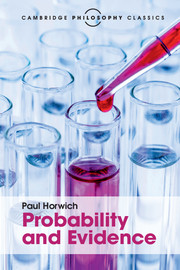Summary
The traditional problem of induction derives from Hume's question: ‘What is the nature of that evidence which assures us of any real existence and matter of fact beyond the present testimony of our senses or the records of memory?’ His answer is that we expect the future to resemble the past and ‘expect similar effects from causes which are to appearance similar’. But he argues that this assumption cannot be deductively justified (since no contradiction arises from its denial), and cannot be established by reasoning appropriate to matters of fact (since such reasoning would require the very assumption to be justified, and would therefore be circular). And so he infers that ‘our conclusions concerning matters of fact are not founded on reasoning or any process of the understanding’. In short, Hume's view is that these beliefs are determined by the unjustifiable instinctive expectation that nature will be uniform.
As we shall see, there has been little improvement upon Hume's line of thought, although these days the discussion is more refined. In particular, it now seems clear that the problem of induction – to investigate the rational basis of inductive inference – cannot be resolved without considerable preliminary attention to (A), the nature of inductive inference; and to (B), what should be required in a justification of it. Thus, there are three distinct questions here, and three respects in which an alleged solution may be open to criticism. Firstly, it may involve, and exploit, an erroneous conception of our inductive practice. As the grue problem reveals, we do not generally accept the rule
All the many sampled As have been B
∴ Probably all As are B
Secondly, it could presuppose mistaken standards of justification.Obviously, we should not be required to show that inductive arguments are invariably truth preserving.And thirdly, it may fail, even within its own terms, to establish that what is taken to constitute our inductive reasoning does meet the supposed adequacy conditions.
- Type
- Chapter
- Information
- Probability and Evidence , pp. 68 - 92Publisher: Cambridge University PressPrint publication year: 2016



